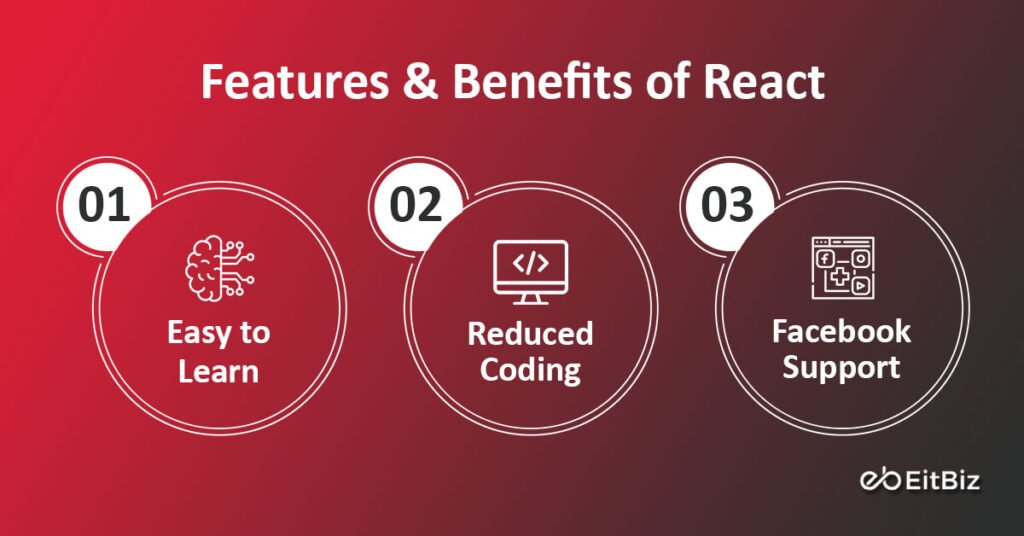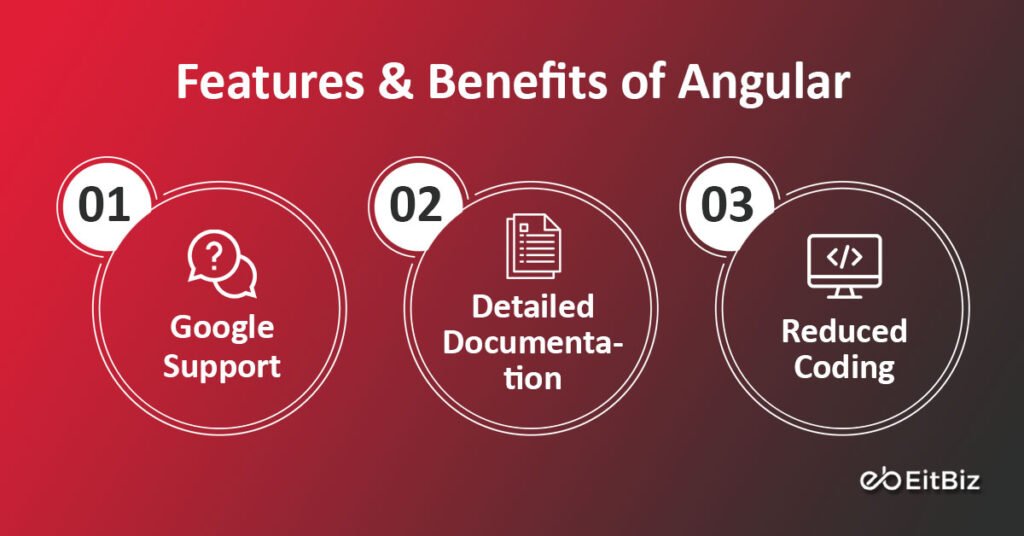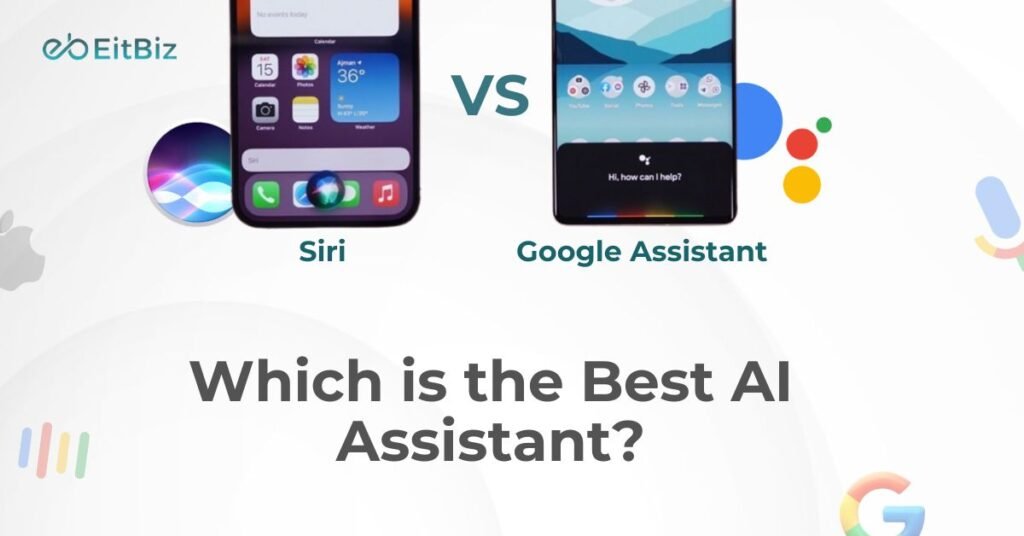So, you’re planning to build a solid mobile/web app!
Well, that’s why you landed right here, looking to know the difference between React vs. Angular.
Let’s face it!
If you consider React & Angular for app development then you’ve already won half of the app development battle.
Though Angular and React are widely popular, they have different functionalities. The former is a JavaScript framework built using TypeScript while the latter is a JavaScript library built using JSX.
Let’s give you a quick fact regarding both frameworks!
According to the survey, more than 40% of all respondents leverage React, while over 20% utilize Angular. It clearly shows React outperforms Angular in usage.
But don’t just judge Angular based on one fact.
There’s more to the story!
In this post, we’ll dive into the ins and outs of React & Angular to choose the right framework for your project.
Understanding React
In layman’s language, React is an open-source JavaScript library that enables developers to build solid mobile and web apps across multiple browsers and OS. Since it has a component-based architecture, it enables professionals to simplify UIs with no difficulty. From building a single-page app to complex apps, react can easily let you build quick and scalable apps that perform well on all kinds of devices. Backed by the code reusability factor, it allows experts to build a different app using the same code, which ultimately saves time and effort.
The major highlight of React is that it is managed by Facebook and has a large community of developers. Unlike other kinds of frameworks, React uses server-side rendering to provide a flexible, feature-rich, seamless, and responsive UI. If you don’t have the time or technology to do it, simply hire the best React development company to do it for you!
Speaking of its popularity, React has garnered attention globally due to its wealth of features.
Important Facts & Statistics Related to React
Let’s take a look at the important facts and statistics that show the popularity of React.
- Of the top 1 million websites with the highest traffic, more than 155,000 use React.
- More than 60% of websites that use React use React Version 16.
- Nearly 85% of React websites use Google Analytics.
That’s the popularity of React!
But is enough to know about React? Well, certainly not!
Let’s set our sights on the top features and benefits of React.
Top Features & Benefits of React Every Business Should Know

Let’s take a look at the salient features and benefits of React for the app development process.
- Easy to Learn
One of the biggest benefits of React is that it’s comparatively easy to learn and implement. Furthermore, it has an SEO-friendly library which makes it easier for developers even with little to no technical knowledge. Since it focuses on rendering speed, React can help reduce the load time of a website/app and a higher rank in SERPs (Search Engine Result Pages) or app stores.
- Reduced Coding
Another major highlight of React is that developers will have similar code for both the server-side and client-side of an application. If you choose React for mobile or web app development then it will ultimately have high speed. Thus, it makes it easy for your customers to navigate and browse the app with a breeze. Moreover, it’s easy to test because React can treat views as functions of a specific state.
- Facebook Support
Its Facebook support makes it a popular choice among developers for mobile app development. With such huge assistance, many reputed and certified communities and developers maintain its framework which improves the app’s quality and functionality. Speaking of its counterpart, Angular which is backed by Google, Facebook also feels confident and proud about React. Furthermore, React offers a wealth of possibilities for developers to adapt to the framework quickly and proceed toward successful mobile app development.
Angular: What is it?
In layman’s language, Angular is an open-source JavaScript framework that helps developers build feature-rich and performance-oriented mobile/web apps. Managed by Google’s Angular team, Angular developers efficiently leverage HTML, CSS, & TypeScript to facilitate mobile app development. Whether you want to build single-page or enterprise-grade apps, Angular development has a complete suite of tools and technologies to finish projects on time.
The latest version of Angular is Angular 13 which enables developers to craft professional-grade apps for different industry verticals.
Just like we did to React, it’s time to shed some light on “Angular’s popularity”, as well!
Important Facts & Statistics Related to Angular
- The framework is used by 0.4% of all the websites whose JavaScript library is known. This is 0.3% of all websites.
- According to Statista, React.js (42.62%) and Angular (20.39%) are used by mobile app developers worldwide.
Features and Benefits of Angular Every Business Should Know

Here is a list of the features and benefits of Angular for mobile or web app development.
- Google Support
Since the framework is backed by Google, it provides long-term support to developers. Furthermore, Google is always geared up to enhance the functionality of the framework to keep up the app’s functionality as per the customers’ interest. It is quite surprising to know that all Google apps use the Angular framework. With such a huge community of developers, Angular framework is gaining popularity among developers of all kinds.
- Detailed Documentation
One of the biggest advantages of Angular is that it provides extensive documentation to developers to resolve issues that arise during mobile app development. During mobile app development, developers usually run into multiple issues which can hinder the entire process. With Angular, developers will have access to a wealth of resources, including tutorials, documentation, Q&As, and more. Furthermore, it is also helpful for newbie developers to learn the code and gain knowledge on Angular.
- Reduced Coding
Developers will likely build lightning-fast apps when you consider Angular for mobile or web app development. Since TypeScript backs it, experts can easily identify errors and eliminate them, ultimately leading to a seamless app development process. The major highlight of Angular is that developers will not need to worry about organizing any service, components, or specific code type into dedicated boxes.
A Quick Comparison Between Angular & React
Let’s compare Angular and React based on the following parameters.
| Parameters | Angular | React |
| Language | TypeScript (a superset of JavaScript) | JavaScript |
| Framework Type | Full-fledged MVC framework | JavaScript library for building UI components |
| Architecture | Component-based architecture | Component-based architecture |
| Learning Curve | A steeper learning curve due to its complexity | Relatively easier to learn and get started |
| Data Binding | Two-way data binding using ngModel | One-way data binding with Flux/Redux |
| Popularity | Widely adopted, especially in enterprise projects | Popular for building interactive user interfaces |
| Updates and Maintenance | Regular updates and long-term support | Regular updates and community-driven maintenance |
| Flexibility | Opinionated framework with set conventions | More flexibility in choosing libraries and tools. |
Final Thoughts
So, that’s a wrap to the comparison between Angular & React! While choosing the suitable app development framework between React vs. Angular, always analyze your usages, project requirements, and functionalities.
But building an app is not a cakewalk. There are multiple technologies and functionalities involved. Whether you’re planning for Angular app development or React app development, hiring professional assistance is a must! Partner with a leading web/mobile app development company like EitBiz and build robust, scalable, and feature-rich apps that drive “Growth”. Call us at +1 (812)530-6300 or mail to info@eitbiz.com today.
Author
-

Vikas Dagar is a seasoned expert in the field of web and mobile applications, boasting over 14 years of experience across a multitude of industries, from nimble startups to expansive enterprises. Visit Linkedin
View all posts






